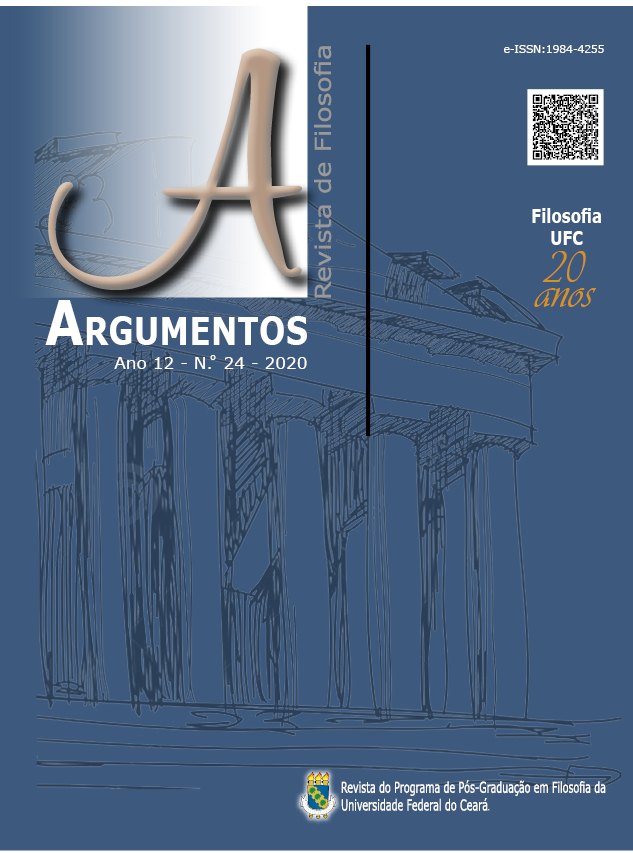Human rights in Sophocles’ Antigone
DOI:
https://doi.org/10.36517/Argumentos.24.1Keywords:
Greek Tragedy. Sophocles. Antigone. Ode to Man. Art TechnologyAbstract
This paper aims to present an analysis of the “Ode to Man” justifying its relevance as an announcement of the drama performed on stage and a diagnostic on the risks of human action. Reigning over Nature Man asserts his supremacy through his use of thought and language which allow him to found cities and invent the political, legal and medical arts. He is, however, warned of the perils of technology for its use maximizes his ability to act toward right or wrong ends.References
ROCHA PEREIRA, M. H. da. A propósito de representação de Antígona. In: Estudos sobre a Grécia
Antiga. Coimbra: Fundação Calouste Gulbenkian/Imprensa da Universidade de Coimbra,
p. 363-366, 2014.
SANTOS, J. T. Morte e vida na Antígona, de Sófocles. Archai. Brasilia, n. 8, p. 21-25, 2012.
SANTOS, J. T. Antígona sem explicações. Hypnos. Rio de Janeiro, n. 15, p.69-84, 2005.
SANTOS, J. T. Antígona: A mulher e o Homem. Humanitas. Coimbra, n. 47, p. 115-138, 1995.
SÓFOCLES. Antígona. Introdução, tradução e notas de Maria Helena da Rocha Pereira. Coimbra:
INIC, 1984.
SOPHOCLE. Ajax, Antigone, Oedipe-Roi, Électre. Texte établi et traduit par Paul Masqueray. Paris: Les Belles Lettres, 1929.
SOPHOCLES. Oedipus the king. Oedipus at Colonus. Antigone. Translation by F. Storr. London; New York. William Heinemann Ltd.; The Macmillan Company. 1912. Disponível em: http://www.perseus.tufts.edu/hopper/text?doc=urn:cts:greekLit: tlg0011.tlg002.perseus-grc1.
Downloads
Published
Issue
Section
License
Argumentos magazine is licensed under an International Creative Commons Attribution License.
The Magazine uses CC BY inclusion
1) The authors retain the copyright granted to the magazine or the right to initial publication, with the work regularly licensed under the Creative Commons Attribution, which allows the sharing of the work with acknowledgment of authorship and initial publication in this magazine.
2) The authors are authorized to contract additional applicable contracts, for non-exclusive distribution of the version of the work published in this journal (for example, publication in the institutional repository or as a chapter of the book), recognition of authorship and initial publication in this journal.
3) Authors are authorized and encourage to publish and distribute their work online (for example, in institutional repositories or on their personal pages) at any time before or during the editorial process, as they can generate productive changes, as well as increase the impact and reference of published work.




.jpg)










._._3.png)
1.jpg)
._._._.png)
